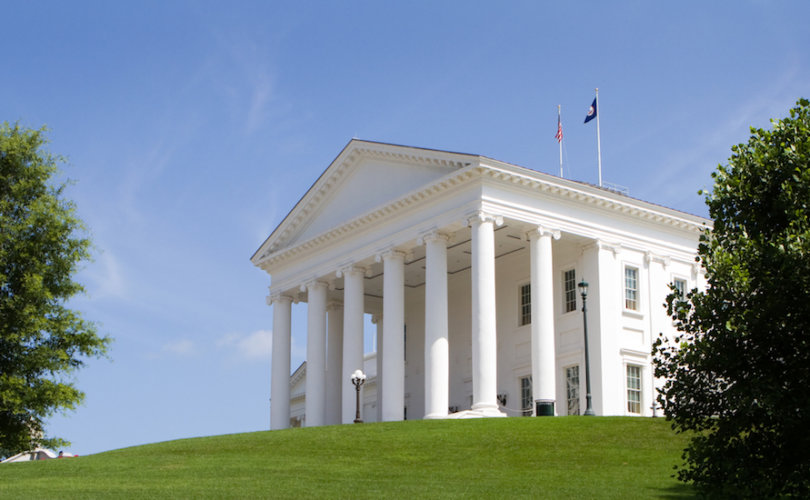RICHMOND (LifeSiteNews) — A Democrat effort to repeal the Virginia Constitution’s unenforced prohibition on same-sex “marriage” has failed to receive the necessary votes to advance beyond a subcommittee in the state House of Delegates.
Since 2006, the state constitution has stated that “only a union between one man and one woman may be a marriage valid in or recognized by this Commonwealth,” though the language has been unenforceable since 2015, when the U.S. Supreme Court forced all 50 states to recognize same-sex “marriages” in Obergefell v. Hodges.
The Center Square reports that Democrat state Sen. Adam Ebbin, one of the first openly homosexual members of the state legislature proposed a constitutional amendment to submit to voters that would repeal this language.
But the subcommittee considering the House version of the bill, consisting of four Republicans and just one Democrat, voted to reject it, killing the amendment’s prospects for the time being.
None of the GOP lawmakers to oppose the measure elaborated on their reasoning, but a lobbyist with the Virginia Family Foundation, Todd Gathje, argued that “[w]ith the court’s precedence in Dobbs [which overturned Roe v. Wade last summer], the court is clearly in a position to reverse its erroneous 2015 decision. If and when it does, Virginia’s Constitution should continue to reflect the truth about marriage.”
“Today’s vote proves that Virginia’s Republican Party believes that the far-right Supreme Court will act to overturn the precedent set in the Obergefell v. Hodges ruling, and it’s clear they want to be ready to ban current, lawful LGBTQ marriages if they do,” complained Liam Watson, press secretary for the Democratic Party of Virginia.
While many social conservatives and judicial originalists would like to see Obergefell overturned, and conservative Justice Clarence Thomas has written that the 2015 ruling should be revisited, there is no indication that a majority of the current justices would vote to do so; Justice Brett Kavanaugh, who was one of the five votes to overturn Roe, wrote that Dobbs “does not mean the overruling of those precedents, and does not threaten or cast doubt on those precedents.” Nor is there any indication that a case to raise the issue is anywhere close to reaching the nation’s highest court, or that the Republican Party currently has any appetite for such a battle.
As a practical matter, neither current law nor the Ebbin amendment would have affected the status quo in Virginia; on top of reigning judicial precedent, the federal Respect for Marriage Act, signed into law last December by President Joe Biden, legislatively codifies Obergefell’s denial of states’ ability to recognize only male-female unions as marriage.

